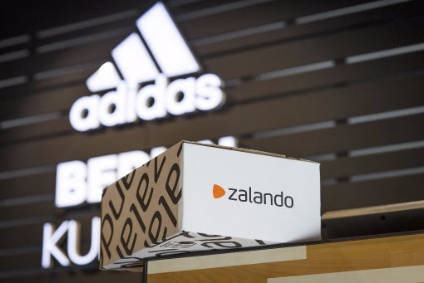
German fashion e-tailer Zalando is making sustainability a mandatory requirement for its private labels and partner brands – and after 2023 won’t work with those that don’t measure up.
Berlin-based Zalando will use the latest version of the Sustainable Apparel Coalition’s (SAC) Higg Brand and Retail Module (Higg BRM) to gather comparable sustainability data from its partner brands.
“As Europe’s leading online platform for fashion and lifestyle, we want to raise the bar, act first and bring our partners on the journey to address today’s most important issues: climate change, use of resources and worker rights,” says Kate Heiny, director of sustainability at Zalando.
“As part of our sustainability strategy, do.MORE, we have made assessments around ethical and sustainable parameters for our brand partners mandatory. The Higg BRM will help us achieve our goal to continuously increase our ethical standards and by 2023 only work with partners who align with them.”
Standard system
While all brands and retailers have their own assessments and goals, the sector has been missing a common method to measure sustainable performance. Higg Co, a standalone technology company, was spun out of the SAC in 2019 to try to address this gap.

US Tariffs are shifting - will you react or anticipate?
Don’t let policy changes catch you off guard. Stay proactive with real-time data and expert analysis.
By GlobalDataThe Higg BRM provides brands and retailers with a comprehensive way to assess their performance around ethical and environmental parameters such as human rights, fair wages or carbon dioxide emissions. Users can organise their sustainability priorities based on the results.
All SAC brand and retail members will eventually use the Higg BRM to measure their sustainability performance and progress, making it possible for the apparel industry to compare sustainability at brand level.
SAC executive director Amina Razvi adds sustainability is a “loaded term” that can be difficult to define. “There are hundreds of certificates, labels, and initiatives in the market, and the line between where sustainability begins and ends can be blurry,” she explains.
“Zalando’s decision to require its partner brands to use the Higg BRM will serve as a catalyst for bringing the industry together towards a standard system for sustainability measurement. This is how we can implement and achieve lasting change.”
“More strikingly than ever, the coronavirus crisis has brought to light many of the challenges the industry faces,” Razvi says. “Maintaining strong business relationships, leading with values of sustainability and compassion for the health, safety, and well-being of workers around the world, and leveraging sustainability as a lens for both recovery and rebuilding will be critical for the industry.”
Commenting on Zalando’s move, Flora Davidson, co-founder of online sourcing startup SupplyCompass, notes: “Every part of the fashion industry – brands, multi-brand retailers, manufacturers, tech companies, investors, consumers, and policymakers – all have an equally important role to play in the transformation of the industry into a more sustainable one. Analogue, fragmented systems, and a lack of transparency and accountability has made this challenging until now.
“This is an important partnership that hopefully signifies a shift for the fashion industry; one that really needs a standardised way of assessing, rating and communicating sustainability performance. This is paving the way for a new way of working that is centred around openness, cross-industry collaborations, and adoption of new technologies that place data at the heart.”




